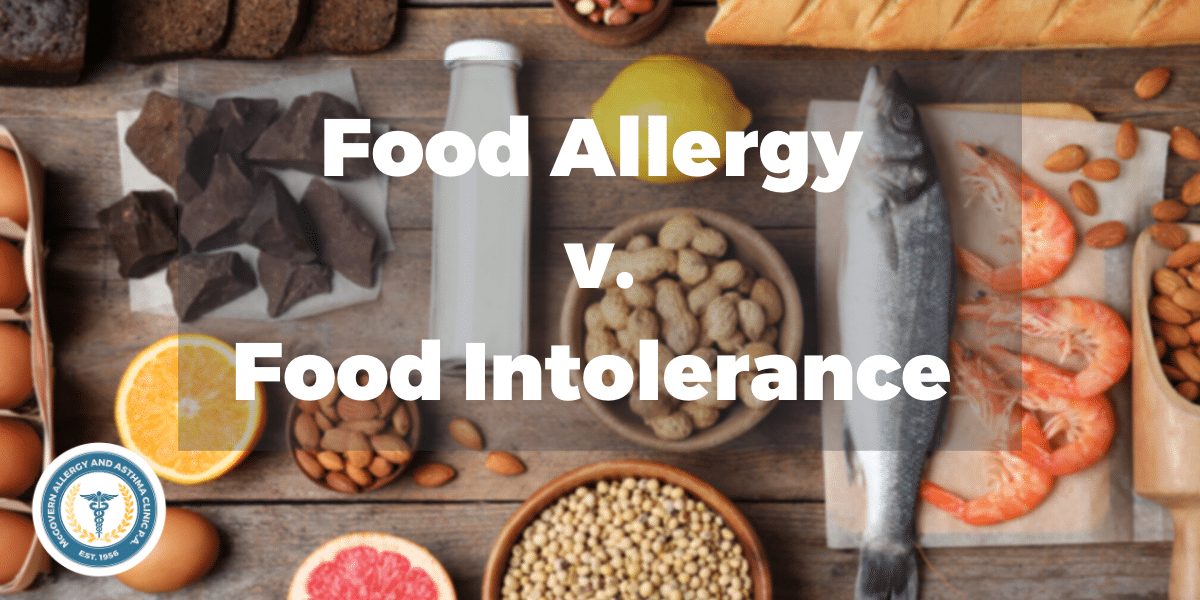Have you ever eaten something that you had a bad reaction to? Well, having a physical response to a specific type of food could either mean that you have a food allergy or food intolerance. Most people often confuse the two because similar symptoms occur.
Although food intolerance is more common, it’s important to differentiate between the two so that you are able to identify any life-threatening reactions.
What having a Food Allergy Means?
Having a food allergy is the result of your immune system reacting to a food or ingredient that it thinks is harmful to your body.
There are two parts of the immune system that can trigger an allergy:
Immunoglobulin E (aka IgE) is an antibody (a type of protein) that moves through the blood.
Mast Cells are specific cells that are apparent in all of your body tissues like the nose, throat, skin, lungs, and digestive tract.
The set up of an allergy to a certain food is that a surplus of IgE is produced then released, which attaches itself to the mast cells. Whenever you eat that food a second time the allergen will then react with the IgE, which will then trigger the mast cells to release a chemical that will fight off the allergen.
Symptoms include:
-
- Itching of the mouth, diarrhea, vomiting, and stomach pains are caused by the timing of digestion.
- Drop in blood pressure is caused by allergens in the bloodstream.
- Hives and eczema are caused by skin contact.
- Lastly, allergens in the lungs can cause wheezing and difficulty breathing.
Common types of food allergies
Adults:
-
- Peanuts
- Tree nuts (e.g. walnuts, almonds)
- Shellfish (e.g. shrimp, lobster, crab)
Children:
-
- Eggs
- Milk
- Peanuts
Keep in mind that if you’re allergic to a certain food you can also be allergic to other foods in the same group. For example, if you have an allergy to shrimp you can also be allergic to other shellfish, or if you’re allergic to one type of tree nut, you can also be allergic to other tree nuts.
What does having a Food Intolerance mean?
Food intolerance is when your digestive system has a difficult time ingesting food or ingredient. What differentiates an intolerance from an allergy, is that you can still eat a certain type of food you have an aversion to in small quantities, without inducing life-threatening reactions.
Causes for an intolerance include a lack of enzyme for digestion, irritable bowel syndrome (IBS), sensitivity to food additives, psychological factors, and celiac disease.
Symptoms include:
-
- Gas
- Stomach pains
- Bloating
- Diarrhea
Usual problems and types of intolerances:
-
- Lactose: there’s a natural sugar found in dairy products that your stomach does not have the enzymes to digest.
- Sulfites in wines and pickled foods are a type of food additive.
- Gluten Intolerance: is caused by a protein in wheat and other grains.
- Fructose: another natural sugar that is found in fruits and sweeteners.
- FODMAP (fermentable oligosaccharides disaccharides monosaccharides and polyols) is a carbohydrate that attracts water to your intestines during digestion. This includes foods like apples, honey, and wheat.
Treatment
If you have a food allergy, it is highly recommended that you go to an allergist to get diagnosed and tested. Even a small amount of an allergen can trigger a reaction. Carrying an EpiPen or prescribed medication for safety measures is advised for emergencies.
With food intolerance, you just have to be wary of the quantity and types of foods that you eat. For example, having an intolerance to lactose is common but there are pills and medicine that you can take to prevent and alleviate stomach pains. Prevention for food intolerances is similar to food allergies. We highly recommend that you consult with a professional to treat and identify your symptoms.
Contact Us
If you’re struggling with allergies, asthma, or eczema- don’t suffer in silence. Book an appointment with one of McGovern Allergy and Asthma Clinic’s esteemed allergists today. Call 713-661-1444 or visit mcgovernallergy.com.

